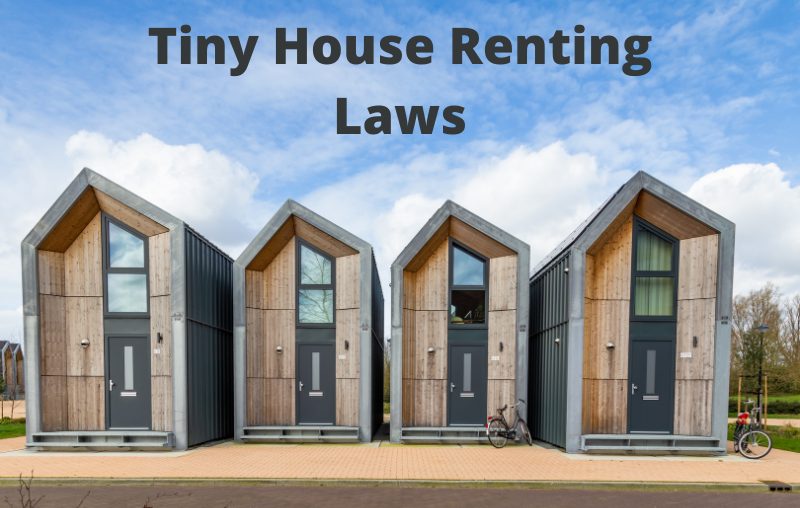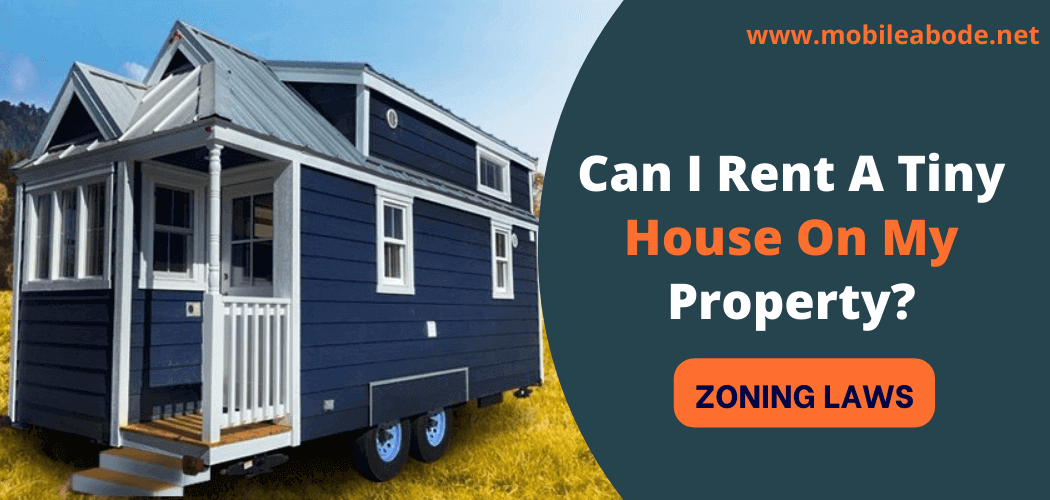Tiny homes are becoming more popular every day and for good reason- they’re adorable, eco-friendly, and affordable.
Looking for a way to downsize your living expenses without having to give up your home? Tiny houses may be the answer! While there are a few restrictions on where you can park them, many people are choosing to rent out space on their property for a tiny house.
This can be a great option if you’re looking for extra income or want to put some extra distance between yourself and your guests.
Renting a Tiny House on Personal Property
The short answer is yes, but there are a few things to keep in mind.
- First, you’ll need to check with your local zoning regulations to make sure that tiny houses are allowed in your area.
- Next, you’ll need to find a spot on your property that’s large enough to accommodate the tiny house and has access to utilities like water and electricity.
- Finally, you’ll need to make sure that you’re comfortable with the idea of having someone else living on your property.
If you’re still interested in renting out a tiny house on your property, there are a few things you can do to make the process easier.
First, reach out to other tiny house owners in your area and see if they have any advice. Several online resources can help you get started, like the Tiny House Society.
No matter what you decide, remember that renting out a tiny house can be a great way to earn some extra income and meet new people!
What zoning regulations or permits are required for tiny houses renting?
If you’re thinking about building a tiny house, one of the first things you need to do is research the zoning regulations and building codes in your area.
Zoning regulations and permits for tiny houses can vary greatly from place to place. It’s important to check with your local zoning office to see what is required in your area. In some cases, a permit may be required for a tiny house on wheels, while in other cases, only a building permit is necessary.
In still other cases, there may be no special regulations or permits required at all. Each situation is unique, so it’s important to do your research ahead of time.
One thing to keep in mind is that even if your tiny house is on wheels, it may still be considered a “structure” by your local zoning office. This means that you may need to obtain a permit before you can park it on your property. Check with your local zoning office to see what regulations apply in your situation.
In general, it’s best to err on the side of caution and assume that you will need some sort of permission or permit to build or park a tiny house on your property. It’s always better to be safe than sorry when it comes to following the law.
How much does it cost to rent out a tiny house on your property?
The average tiny house rental cost is around $400 per month. However, this can vary greatly depending on the location, size, and amenities of the tiny house.
For example, a luxury tiny house in a desirable location could cost as much as $1,500 per month. Conversely, a more basic tiny house in a less desirable location could cost as little as $200 per month.
Ultimately, the best way to determine the cost of renting out a tiny house on your property is to contact various tiny house rental companies in your area and ask for quotes.
Are there any restrictions on who can live in a tiny house?
There are no specific restrictions on who can live in a tiny house, but there are some general considerations to keep in mind.
- First, because of their small size, tiny houses are not well-suited for families with children or pets.
- Second, because they often lack amenities like kitchens and bathrooms, tiny houses may not be appropriate for people with certain medical needs.
- Finally, because they can be difficult to finance and insure, tiny houses may not be a good option for everyone.
Ultimately, it’s up to each individual to decide whether a tiny house is right for them.
How do you market and manage your tiny house rental property?
There are a few key things to remember when marketing and managing your tiny house rental property.
1) Amenities you offer
First, be clear about what you’re offering. Your guests should know exactly what they’re getting when they book a stay with you. Be sure to list all the amenities your property offers, as well as any special rules or requirements that guests need to be aware of.
2) Competitive Price
Next, make sure your pricing is competitive. Take a look at similar properties in your area and price your rental accordingly. It’s also important to be flexible with your pricing – consider offering discounts for longer stays or last-minute bookings.
3) Make sure the house is neat and clean
Finally, keep your property well-maintained and clean. This will help ensure that guests have a positive experience and are likely to recommend your rental to others. Regularly inspect your property and address any issues promptly. If you have a cleaning service, be sure to schedule cleanings regularly.
By following these tips, you can successfully market and manage your tiny house rental property.
FAQs Regarding Tiny House Renting

Do you need resource consent for a tiny house?
The answer to this question depends on a few different factors, including the size and location of your tiny house. In general, you will need resource consent if your tiny house is:
- Located on land zoned for residential use
- Connected to utilities such as water and sewerage
- Built on a foundation or wheels
If your tiny house meets all of the above criteria, you will most likely need to apply for resource consent from your local council such as Seattle city council. The process and fees for this can vary depending on your location, so it’s best to check with your council in advance.
Can you use KiwiSaver for a tiny home?
KiwiSaver can be used as a deposit for a tiny home, but you’ll need to have saved at least $20,000. The first $10,000 can be withdrawn without penalty, but you’ll need to pay tax on the remaining amount. Talk to your financial advisor to see if this is right for you.
Can I put a cabin on my land?
This is a difficult question to answer without knowing more about your land and what you hope to accomplish with a cabin. That being said, in many cases, the answer is yes – you can put a cabin on your land.
However, there are a few things you need to keep in mind before moving forward with this type of project.
- First, you need to make sure that your land is zoned for this type of development.
- Second, you need to be aware of any building codes and regulations that may apply to your project.
- Finally, you need to have realistic expectations for what you hope to achieve with your cabin. If you are hoping to use it as a primary residence, you need to be aware that it will likely require a significant amount of money and time to build.
What size qualifies as a tiny house?
People have different opinions on what constitutes a “tiny” house. However, most experts agree that a tiny house is any dwelling unit that is 400 square feet or less in size. This includes both traditional houses and RVs (recreational vehicles).
Some people believe that a true tiny house must be 100 square feet or less. Others believe that anything under 500 square feet is considered tiny.
The main point is that a tiny house is significantly smaller than a traditional home. It is usually about one-third the size of a typical home in the United States, which averages around 2,600 square feet.
How many houses can I build on my property?
The number of homes that can be built on a property depends on a few factors, including the size of the lot, the zoning regulations in your area, and any deed restrictions that may be in place.
In most cases, you will be able to build at least one house on your property. However, if you have a very small lot or your property is located in a highly regulated area, you may only be able to build a handful of homes.
Deed restrictions are often put in place by developers or previous homeowners and can limit the number of homes that can be built on a piece of land. If you’re unsure about the restrictions on your property, you should contact your local planning and zoning department to learn more.
Wrap Up
Renting out a tiny house on your property can be a great way to make some extra cash. You can charge for rent, or you could use the tiny house as an Airbnb rental.
There are a few things you need to keep in mind before renting out your tiny house though. Make sure you are familiar with zoning laws and building codes in your area, and always have a written agreement between yourself and your tenant.
Renting out a tiny house is a great way to help people downsize their lives, and it can be a fun experience for both you and your tenants!
And if everything checks out, go ahead and start sharing your little slice of paradise with others!

